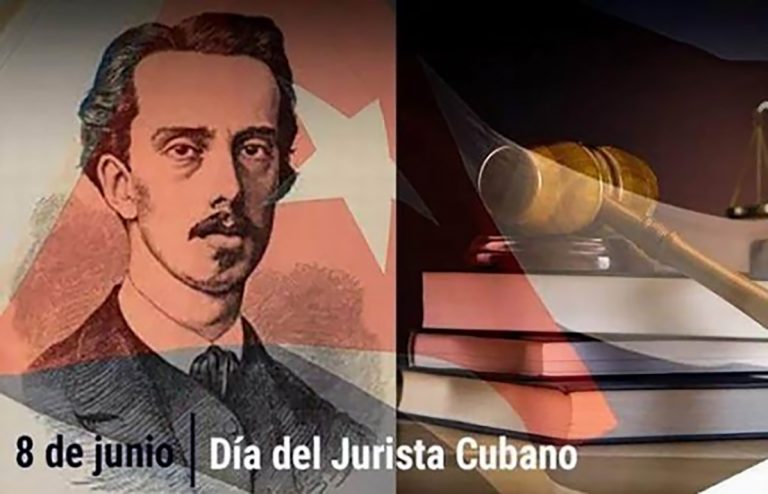Some time ago, I had the opportunity to visit the Colegio Universitario San Gerónimo de La Habana, a faculty of the University of Havana that began operating in the 2007-2008 academic year.
Centuries before, the first Cuban University was located in that beautiful building, restored by the Historian Office of the capital. To the pride of the people of Camagüey, in the mural of honor, Ignacio Agramonte and Loynaz appears among its most notable graduates.
Seeing his name on the list, the admiration that I have always had for El Mayor led me to inquire about this part of his life, which is only spoken of close to the commemoration of the day of the Cuban jurist.
In the world of justice
Exactly on June 8th, but in 1865, Agramonte defended his Degree Thesis there, in order to graduate from the Faculty of Law.
Following a professional line supported by his family, he graduated first as a Bachelor of Civil Law and Canon, in June 1865, then obtained a Doctorate on August 24th, 1867.
It was in the old Convent of Santo Domingo (today San Gerónimo) where on February 22nd, 1862, in an academic exercise, at various points in his speech he alluded to the Spanish regime, the lack of freedoms, rights and justice, indicating in its final part the need “for a revolutionary change in Cuban society.” That dissertation is currently considered a revolutionary speech.
Zambrana’s Notes
Antonio Zambrana, who was later a delegate to the Constituent Assembly of Guáimaro and a deputy to the House of Representatives, as a witness to that academic exercise of Ignacio, later recalled:
“That was a clarion call. The floor of the entire old convent of Santo Domingo, where the University was then, would have been said to tremble. The professor who presided over the act said that, if he had previously known that speech, he would not have authorized its reading.
Short life as a lawyer
After concluding his studies, Agramonte decided to put the acquired knowledge into practice, for which he lived for some time in Havana, where he served as justice of the peace in the Guadalupe neighborhood and practiced his profession in that city, in the law firm of Antonio González de Mendoza. ; from mid-1868 in Puerto Príncipe, until his incorporation into the struggles for independence.
In the orders that he issued to his soldiers and in the decisions that he had to make, in front of his cavalry, fairness and decorum were never lacking, values that he gained in his training as a lawyer and that led him to be admired and respected by other figures of the liberating army.
When the day of the Cuban jurist is celebrated every June 8th, the date invites those who work in that noble profession, to carry out their work with the decorum and justice that eternally accompanied Ignacio Agramonte, both in the legal profession and in the battlefield and make their career the most ethical; that favors the equity of all Cubans.
Translated by: Aileen Álvarez García






